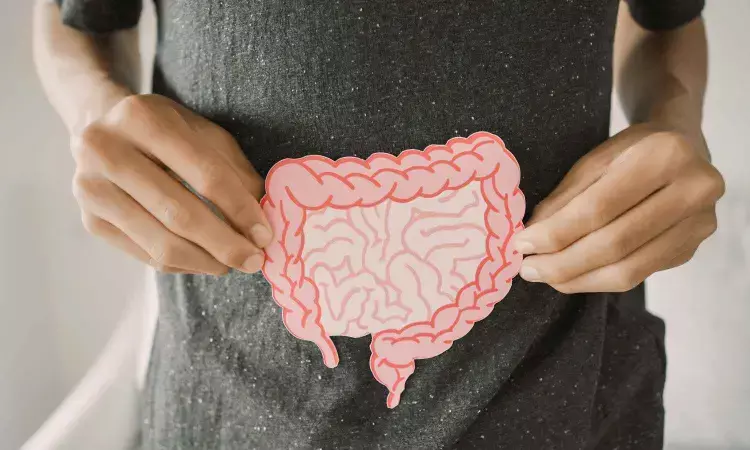- Home
- Medical news & Guidelines
- Anesthesiology
- Cardiology and CTVS
- Critical Care
- Dentistry
- Dermatology
- Diabetes and Endocrinology
- ENT
- Gastroenterology
- Medicine
- Nephrology
- Neurology
- Obstretics-Gynaecology
- Oncology
- Ophthalmology
- Orthopaedics
- Pediatrics-Neonatology
- Psychiatry
- Pulmonology
- Radiology
- Surgery
- Urology
- Laboratory Medicine
- Diet
- Nursing
- Paramedical
- Physiotherapy
- Health news
- Fact Check
- Bone Health Fact Check
- Brain Health Fact Check
- Cancer Related Fact Check
- Child Care Fact Check
- Dental and oral health fact check
- Diabetes and metabolic health fact check
- Diet and Nutrition Fact Check
- Eye and ENT Care Fact Check
- Fitness fact check
- Gut health fact check
- Heart health fact check
- Kidney health fact check
- Medical education fact check
- Men's health fact check
- Respiratory fact check
- Skin and hair care fact check
- Vaccine and Immunization fact check
- Women's health fact check
- AYUSH
- State News
- Andaman and Nicobar Islands
- Andhra Pradesh
- Arunachal Pradesh
- Assam
- Bihar
- Chandigarh
- Chattisgarh
- Dadra and Nagar Haveli
- Daman and Diu
- Delhi
- Goa
- Gujarat
- Haryana
- Himachal Pradesh
- Jammu & Kashmir
- Jharkhand
- Karnataka
- Kerala
- Ladakh
- Lakshadweep
- Madhya Pradesh
- Maharashtra
- Manipur
- Meghalaya
- Mizoram
- Nagaland
- Odisha
- Puducherry
- Punjab
- Rajasthan
- Sikkim
- Tamil Nadu
- Telangana
- Tripura
- Uttar Pradesh
- Uttrakhand
- West Bengal
- Medical Education
- Industry
Probiotics can help or hinder gut recovery after antibiotic treatment: Study

All probiotics are not created equal, according to new research from North Carolina State University. In a mouse model, researchers found that different probiotic strains can either accelerate or delay the gut microbiome’s recovery after antibiotic treatment. The work adds to the body of evidence suggesting that probiotic efficacy is specific and situational, and that more research is needed to understand the strain-specific impacts of different probiotics.
Probiotic supplements are often consumed after antibiotic treatment to prevent antibiotic-associated diarrheal disease, most commonly caused by Clostridioides difficile (C. diff). However, the actual impact of individual probiotic strains on the gut’s microbiota, or bacterial environment, is poorly understood.
“Colonization resistance or the ability to prevent colonization of pathogens is a function of a healthy microbiota,” says Casey Theriot, professor of infectious disease at NC State and co-corresponding author of the research. “This study looked at how long it took resistance against C. diff colonization to return after antibiotics and the impact of two of the most commonly used commercial strains of Lactobacillus probiotic on that return.”
The research team looked at three groups of mice that had been treated with cefoperazone, a commonly used broad-spectrum cephalosporin antibiotic. The first group received no probiotic treatment. The second group received L. acidophilus, and the third received L. gasseri. Each group was challenged with C. diff weekly for four weeks and the microbiota of each group was examined to measure bacterial load and C. diff resistance.
Mice that received no probiotic showed decreased bacterial load and resistance to C. diff infection by four weeks after stopping antibiotics. However, the L. acidophilus mice had an increased bacterial load in weeks two and three, while the L. gasseri group had no detectible C.diff after two weeks.
Additionally, the researchers found that L. gasseri did not colonize or remain in the gut. Instead, it was involved in the production of bacteriocins, or antimicrobial peptides, and it encouraged the growth of Muribaculaceae, another potentially beneficial bacteria.
“We have always known that it’s important to understand the strain-specific impact of probiotic strains,” says Rodolphe Barrangou, Todd R. Klaenhammer Distinguished Professor of Food, Bioprocessing and Nutrition Sciences at NC State and co-corresponding author of the research. “Depending on the condition and composition of the individual’s microbiome, the disease, and the probiotic strain, you will have different effects and outcomes.
“What’s interesting is that this study indicates it’s more complicated than people think, because probiotics can have transient or indirect effects on the microbiome. L. gasseri doesn’t prevent infection, it transiently promotes recovery of microbiome through Muribaculaceae, which subsequently could provide resistance. This opens new avenues to inform what we should do next.”
“This is the only study out there that is functionally testing resistance in the microbiome,” Theriot adds. “Although this work is in a mouse model, it shows the need for better mechanistic understanding of how probiotics affect the microbiome, because not only can they have effects weeks after they’ve left the body, in certain situations they have the potential to prolong or complicate recovery.”
Reference:
Casey Theriot, “Differential Modulation of Post-Antibiotic Colonization Resistance to Clostridioides difficile by Two Probiotic Lactobacillus Strains”, mBio, DOI: 10.1128/mbio.01468-
Dr Kamal Kant Kohli-MBBS, DTCD- a chest specialist with more than 30 years of practice and a flair for writing clinical articles, Dr Kamal Kant Kohli joined Medical Dialogues as a Chief Editor of Medical News. Besides writing articles, as an editor, he proofreads and verifies all the medical content published on Medical Dialogues including those coming from journals, studies,medical conferences,guidelines etc. Email: drkohli@medicaldialogues.in. Contact no. 011-43720751


